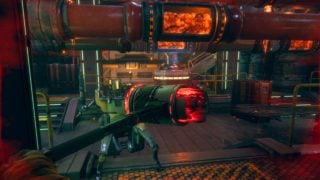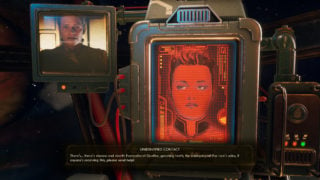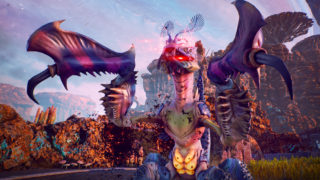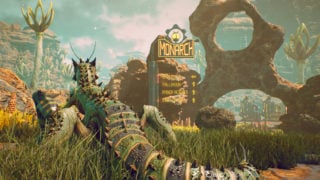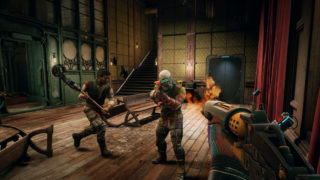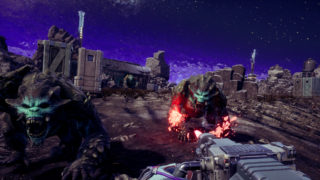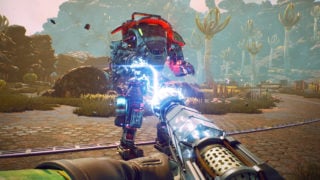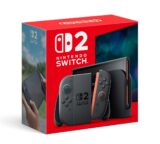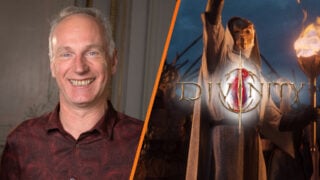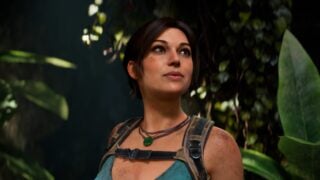Outer Worlds interview: ‘I think Fallout fans will enjoy our game’
Obsidian’s narrative designer discusses the sci-fi RPG

The latest RPG from Obsidian, The Outer Worlds, isn’t out until October but already the studio’s new parent company is talking about growing the title into a long-running franchise.
Microsoft acquired Obsidian in late 2018 and its first-party games boss recently said he hopes The Outer Worlds grows into an “enduring franchise” for Xbox.
Speaking to VGC, the game’s narrative designer Megan Starks said it feels “really awesome” to receive such strong support from Obsidian’s parent company, and the studio already has “a full universe of lore” with which to build potential future games.
Xbox’s first-party boss Matt Booty recently said he aspires to turn Outer Worlds into a long-running franchise. It must feel great to hear that kind of support from your new parent company?
Yeah. They’ve come to talk to the studio and it seems like Microsoft is super invested and really supportive, which for a developer like me feels really awesome. It’s really exciting at the studio right now.
And are you already thinking about long-term plans for Outer Worlds as a franchise?
I guess it depends on if people like the game, but we would absolutely be interested in plans like it, yeah. I really enjoyed making this game so I would like to work on it a while longer. But I think first our focus is polishing up this game and getting it out the door!
The nice thing is, since the game is from the co-creators of the original Fallout IP, they just have notes and notes… it’s crazy. We already have a full universe of lore, which is really nice.
You mentioned Fallout there. Obsidian certainly isn’t afraid to highlight the connection between your co-directors and that franchise. Does that show your confidence in this game?
Yeah, I think so. I’m a fan of Fallout for sure, as well as Borderlands and BioShock and I love this game too, which makes me feel confident. If you like those types of games then I think you will enjoy ours.

I think everybody has their opinions on this, but first and foremost we are making a game for entertainment. We want it to be escapism and we want it to be a fun, enjoyable experience for players. But because we did make it a dystopian society, any real-world universe has to be rooted in these types of things. So of course there is going to be elements of politics in the game, yeah.
Do you think it’s important that there are elements of politics in game narratives?
Yeah, because I think you want to immerse people in the world and have that feel like a real universe that exists, so of course we want to be convincing, even if we are taking it to the extremes so that you can have this absurdist, humorous experience.
And it’s so different from your real world experience that it still provides that escapism and you’re empowered as a player. Because all of the characters are locked into this terrible system that they’re living in, but you exist outside of that so you are able to come in and make the choices that you want to make.
So you’re not pressured from above to cover or avoid any particular topics?
No, absolutely not. Tim and Leonard are really cool. They have a message that they want to convey and it’s my job to bring that to life, but then also introduce some of the things that personally interest me or I’ve experienced that I bring to the table. Because the writing team is so diverse, the type of things that they think are funny or evocative… we each bring that and I think that brings a really interesting mix.

Your design director said earlier this year that Obsidian has a reputation for buggy games, partly due to publisher deadlines. So now that Outer Worlds is almost out, what can you tell us about how the game has shaped up quality wise?
I think he was contrasting how it was in the past versus how we’re operating now. We’re currently playtesting, polishing and catching all of those edge cases and smoothing them out. That’s been our focus for the last few months.
So you’re happy with the quality of the game so far?
For sure, yeah.
The other big announcement recently was the Nintendo Switch version. Have you seen it? What can you tell us about how it’s looking?
We’re actively working on it. I’ve seen some footage and I think it’s looking really exciting. Matt [Singh, producer], who was in the announcement trailer, is a huge Nintendo fan: it was the highlight of his life to work on that deal. My husband was playing Switch on the plane here, so he’s super excited about the announcement too.
I think fans will enjoy it. I know people were really excited about some of the other large titles that came out for Switch, so I think people will really enjoy it. It’s going to be a great game for long commutes.
“Because we did make it a dystopian society, any real-world universe has to be rooted in these types of things. So of course there is going to be elements of politics in the game.”
It seems The Outer Worlds has quite a bit of comedy. Is that hard to do in games, do you think? And why don’t we see more of it?
We had a lot of team members who were interested in that and Tim and Leonard have very different types of humour: Leonard is a little bit darker, whereas Tim wants to lighten the mood. I think that mix has worked out really well in the game and also everybody on the team brings their own style.
I didn’t think I was a comedic writer before – I would just put things in the game that made me chuckle – but one of my team members told me I was really funny, so hearing that and learning my own style was nice.
How difficult in general is it to write for such a huge, open-ended game?
Some of it comes from experience. We had some junior people join the team and I just told them not to worry, because literally everybody makes the same mistakes. The senior people usually make sure you don’t forget things and generally the more games you work on, the easier it gets.

There’s a really long checklist for dialogue; you need to check if a particular NPC is dead, or which abilities you’ve learned or haven’t, what your reputation is with various factions… you just end up storing that all in your head, when if you’re just starting out you might have it on a notepad. It can get very complex, but it’s really satisfying.
Tim came by recently and said he was really impressed by one of the characters that I built, because he was on his eighth playthrough and he said every single time he talked to the NPC he would react differently based on what he’d done. It was nice to hear, but it’s also really time consuming to make that work!
There are a lot of player choice moments in the game. How are you expecting players to react to some of the decisions they will make in the game?
It’s really interesting to me because you want to have a feeling of consequence and that the game is immediately reacting to you. When we were playing through recently during a group playtest, there is this one NPC who becomes really disgruntled if you side with The Board and our producer was really upset at first, but later thought it was hilarious that the NPC was giving her attitude. I think the main goal is that even when you present a set of consequences, to make sure that they’re still fun, not off-putting.
What’s your proudest moment from The Outer Worlds script?
There are so many. This is definitely the largest game that I’ve worked on and showing it off to people has been crazy. At E3 they showed my content for the demo and seeing rooms full of people watch that and chuckle at certain points… I’ve never been in a situation like that before. If people do enjoy it then I think that’s just the best thing ever!
